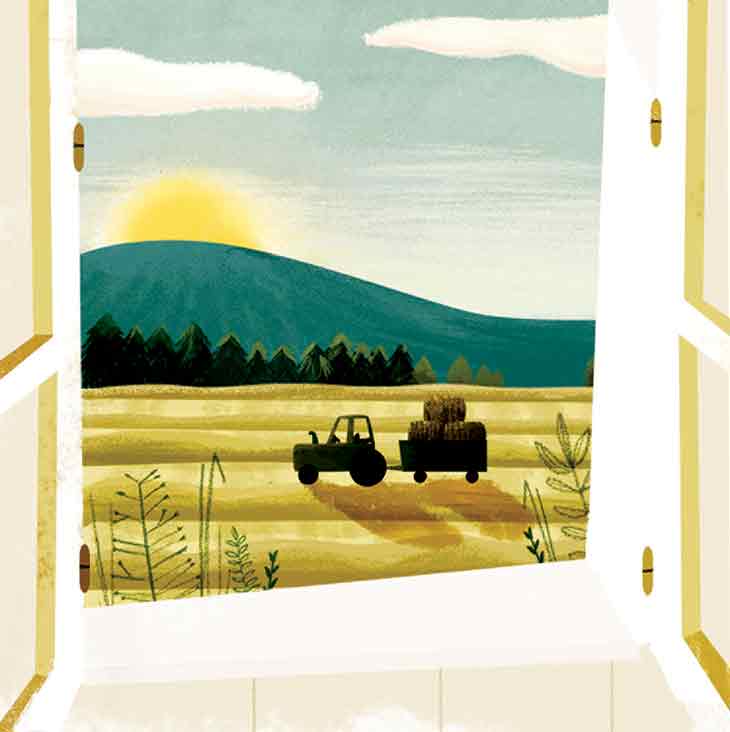In Heaven | Mary’s Farm
A week at Mary’s Farm could put you in another frame of mind. In this isolated place, the woes of the rest of the world sometimes seem very far away, quite imaginary. But I have an apartment in the downstairs of this house that I rent out in the summertime. Guests come from all over–California, […]


Photo Credit : illustration by Clare Owen/i2iart
In this isolated place, the woes of the rest of the world sometimes seem very far away, quite imaginary. But I have an apartment in the downstairs of this house that I rent out in the summertime. Guests come from all over–California, England, Belgium, New York City, Saudi Arabia–proving to me that I need go nowhere; the world can come to me. I meet the most interesting people this way. A weaver. A documentary filmmaker. A writer of scripts for real-life TV dramas. An artist.
The apartment was home for some time to the grandfather of the big family who once lived here. I’ve scrubbed it up and painted it over, but there are still hints of its antique beginnings: the old brick chimney that passes through the kitchen to the upstairs, the deep pine cupboards, the white dome light over the kitchen sink that keeps vigil. Guests seem to enjoy this bit of antiquity. They sit on the porch rockers and take in the untainted air, the silken quiet, and the unadorned view of our mountain.
Last spring, a woman about my age called to see whether she could rent the apartment for her parents. She was staying nearby but had no room for them. I booked them in for a week in July. When they arrived, I greeted them and showed them around. They spoke to me in the musical lilt of the Deep South. It was haying season, the only time of year when there’s a lot of traffic–tractors and trucks coming and going. I apologized for what I knew might be a noisy week. As we spoke, a big green John Deere wheeled into the drive, towing the baler, and headed for the back field. The father smiled broadly. It seemed that he had grown up on a farm in Arkansas and had done his share of haying in his day. Evidently he loved nothing more than a farm scene, noise and all.
It was not only haying season but also peak berry season. I have blueberry bushes and a blackberry bramble that yields good, sweet berries if you can get to them without drawing blood. And a few raspberry canes that came to me from a neighbor a few years ago, humble beginnings for what’s now a darned good raspberry stand. Early mornings in July, I like to make a quick tour of these bushes, carrying my breakfast bowl with me as I pick. When I do this, words such as manna and ambrosia come to mind.
That week, I was busy, not home much, but whenever I was, it seemed to me that my Southern guests were resting contentedly on the porch. The week passed quickly, and soon I looked out to see them packing their bags into their car. I hurried down to say goodbye. It was yet another of our glorious blue-sky days. The mother stood for a long moment beside the car, looking around her, and then, sounding like a character out of Tennessee Williams, she said, “Yue know, Aah feel as if we ah in heaven.”
“I know,” I replied, “I often tell people that I live in heaven.” She turned to me then, a look of surprise on her face. “Yue mean, we agree?”
“Oh yes,” I said, “we do agree!”
“Well then,” she went on, “if we agree, then it must be true! We ah all in heaven!” We all grinned and nodded conspiratorially.
The green tractor worked in the distance; clouds drifted across the blue skies; berries ripened silently on their branches. It was hard, very hard, to imagine that all was not right with the world.


